
Hector Hugh Munro, popularly known by his pen name Saki and also frequently as H. H. Munro, was a British writer whose witty, mischievous and sometimes macabre stories satirize Edwardian society and culture. He is considered by English teachers and scholars a master of the short story and is often compared to O. Henry and Dorothy Parker. Influenced by Oscar Wilde, Lewis Carroll and Rudyard Kipling, Munro himself influenced A. A. Milne, Noël Coward and P. G. Wodehouse.
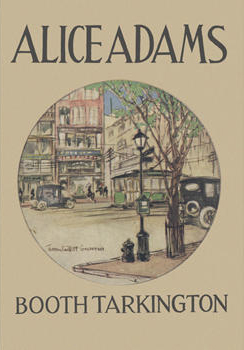
Alice Adams is a 1921 novel by Booth Tarkington that received the 1922 Pulitzer Prize for the Novel. It was adapted as a film in 1923 by Rowland V. Lee and more famously in 1935 by George Stevens. The narrative centers on the character of a young woman who aspires to climb the social ladder and win the affections of a wealthy young man named Arthur Russell. The story is set in a lower-middle-class household in an unnamed town in the Midwest shortly after World War I.
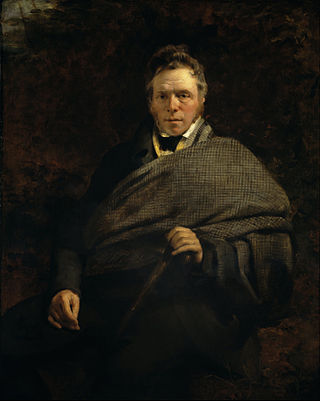
James Hogg was a Scottish poet, novelist and essayist who wrote in both Scots and English. As a young man he worked as a shepherd and farmhand, and was largely self-educated through reading. He was a friend of many of the great writers of his day, including Sir Walter Scott, of whom he later wrote an unauthorised biography. He became widely known as the "Ettrick Shepherd", a nickname under which some of his works were published, and the character name he was given in the widely read series Noctes Ambrosianae, published in Blackwood's Magazine. He is best known today for his novel The Private Memoirs and Confessions of a Justified Sinner. His other works include the long poem The Queen's Wake (1813), his collection of songs Jacobite Relics (1819), and his two novels The Three Perils of Man (1822), and The Three Perils of Woman (1823).

Alice Ann Munro was a Canadian short story writer who won the Nobel Prize in Literature in 2013. Her work tends to move forward and backward in time, with integrated short story cycles.

Persuasion is the last novel completed by the English author Jane Austen. It was published on 20 December 1817, along with Northanger Abbey, six months after her death, although the title page is dated 1818.

Runaway is a book of short stories by Alice Munro. First published in 2004 by McClelland and Stewart, it was awarded that year's Giller Prize and Rogers Writers' Trust Fiction Prize.

Friend of My Youth is a book of short stories by Alice Munro, published by McClelland and Stewart in 1990. It won the 1990 Trillium Book Award.

Hateship, Friendship, Courtship, Loveship, Marriage is a book of short stories by Alice Munro, published by McClelland and Stewart in 2001.
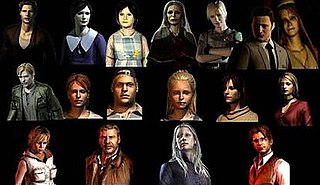
The survival horror video games series Silent Hill features a large cast of characters. The games' player characters are "everymen", in contrast to action-oriented survival horror video game series featuring combat-trained player characters, such as Resident Evil. The games are set in the series' eponymous fictional American town.
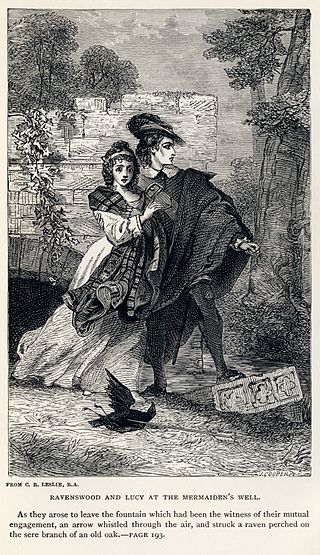
The Bride of Lammermoor is a historical novel by Sir Walter Scott, published in 1819, one of the Waverley novels. The novel is set in the Lammermuir Hills of south-east Scotland, shortly before the Act of Union of 1707, or shortly after the Act. It tells of a tragic love affair between young Lucy Ashton and her family's enemy Edgar Ravenswood. Scott indicated the plot was based on an actual incident. The Bride of Lammermoor and A Legend of Montrose were published together anonymously as the third of Scott's Tales of My Landlord series. The story is the basis for Donizetti's 1835 opera Lucia di Lammermoor.

A Complicated Kindness (2004) is the third novel by Canadian author Miriam Toews. The novel won the Governor General's Award for English Fiction, the CBA Libris Fiction Award, and CBC's Canada Reads.
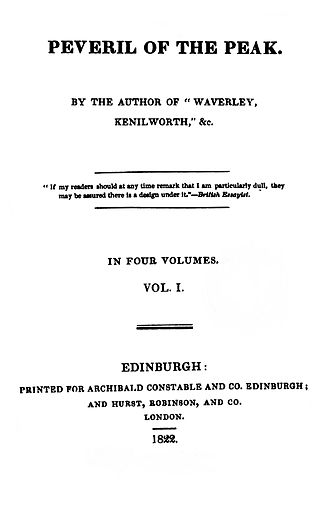
Peveril of the Peak (1823) is the longest novel by Sir Walter Scott. Along with Ivanhoe, Kenilworth, and Woodstock this is one of the English novels in the Waverley novels series, with the main action taking place around 1678 in the Peak District, the Isle of Man, and London, and centring on the Popish Plot.

Fause Foodrage is a Scottish murder ballad of the 17th or 18th century. It was first printed by Walter Scott in Minstrelsy of the Scottish Border (1802). Scott cited Elizabeth, Lady Wardlaw as the ballad's probable author.

The Book Thief is a historical fiction novel by the Australian author Markus Zusak, set in Nazi Germany during World War II. Published in 2005, The Book Thief became an international bestseller and was translated into 63 languages and sold 17 million copies. It was adapted into the 2013 feature film, The Book Thief.

The Last of the Mohicans is a 1936 American historical western adventure film directed by George B. Seitz and starring Randolph Scott, Binnie Barnes and Henry Wilcoxon. The screenplay by Philip Dunne was based on the 1826 novel of the same name by James Fenimore Cooper. It was produced by Edward Small and distributed by United Artists.
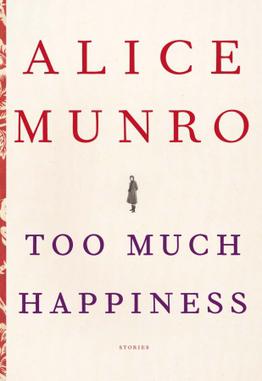
Too Much Happiness is a short story collection by Canadian writer Alice Munro, published on August 25, 2009 by McClelland and Stewart's Douglas Gibson Books imprint. The title story is a fictional retelling of the life of the 19th century Russian mathematician and writer Sofia Kovalevskaya. The book contains ten short stories. Each story outlines the core of its protagonist by narrating selected scenes of that character's life.

Death Comes to Pemberley is a 2011 historical mystery novel by British writer P.D. James that continues the story of Jane Austen's 1813 novel Pride and Prejudice and adds a murder mystery. In the book, Captain Denny, a minor character from Pride and Prejudice, is murdered at Fitzwilliam Darcy's Pemberley estate, and George Wickham stands trial for murder. A three-part television drama, of the same name, was made by BBC One in 2013.
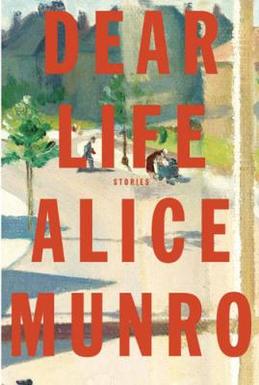
Dear Life is a short story collection by Canadian writer Alice Munro, published in 2012 by McClelland and Stewart.
"Boys and Girls" (1964/1968) is a short story by Alice Munro, the Canadian winner of the Nobel Prize in Literature in 2013 which deals with the making of gender roles.
The Brownie of Bodsbeck (1818) is the first (short) novel by James Hogg. Set in the Scottish Borders in 1685 it presents a sympathetic picture of the persecuted Covenanters and a harsh view of the Royalists led by Clavers (Claverhouse). It draws extensively on local superstitions.


















